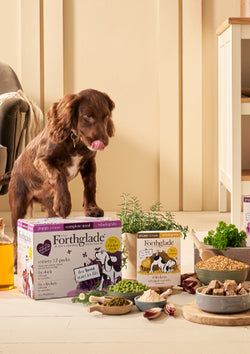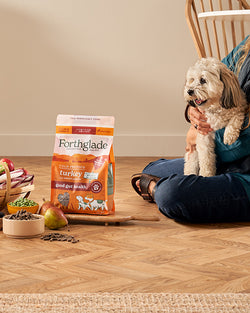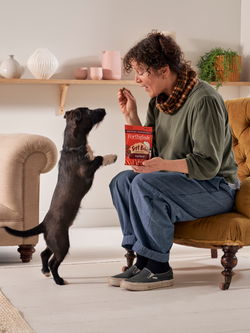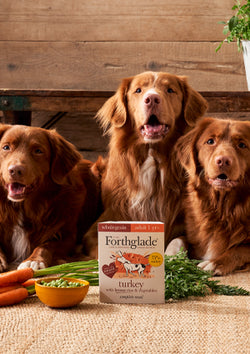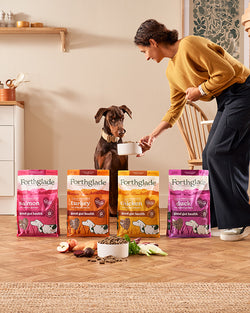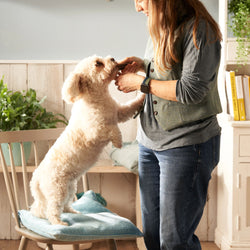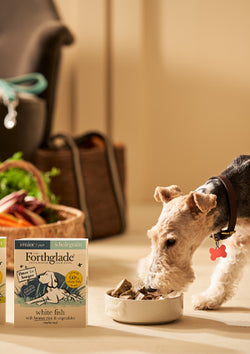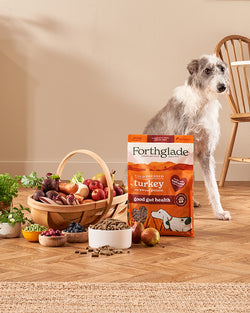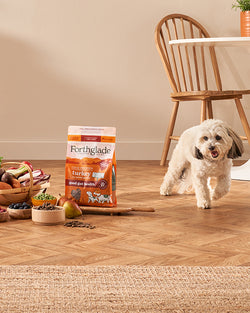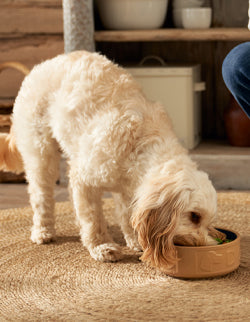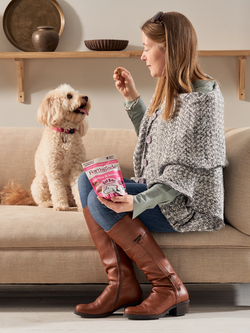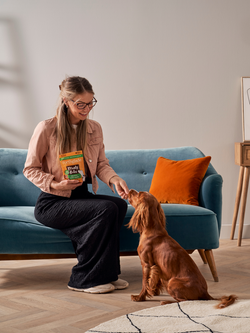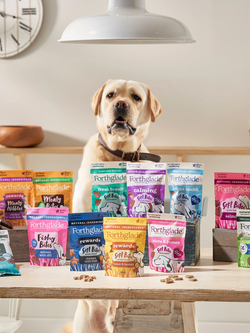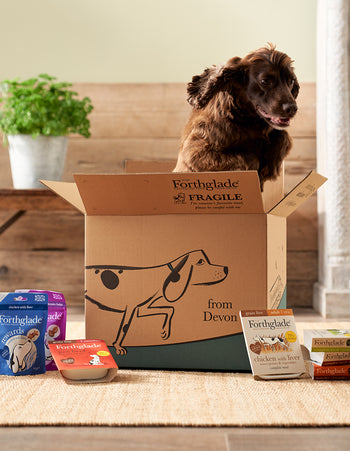Does my dog have a food allergy?
If you notice that your dog reacts to certain food types, it may be that they have an allergy or intolerance to a certain ingredient in their food. It’s important to understand what this means, the difference between an ‘allergy’ and an ‘intolerance’, what to look for, and how you can diagnose it, and what type of dog food to feed them if you are concerned about intolerances.
Can dogs have allergies to food?
Much like humans, dogs can react to different types of food or ingredients, and can develop an intolerance at any point in their lives. When a dog has an allergy, their immune system overreacts, treating the food as a threat to the body, and releases antibodies to counteract it.
Common dog food allergy symptoms
If your dog has an allergy, they may show some of the following symptoms. It’s important that these symptoms are spotted early in order to take necessary action.
- Itchy skin, paws, ears
- Vomiting
- Diarrhea
- Weight loss
- Lack of energy
- Licking themselves a lot
- Upset stomach
What is food intolerance?
An intolerance is different from an allergy. While an allergy provokes a response from the immune system, an intolerance is usually associated with problems digesting food.
Symptoms of food intolerance in dogs
Some indicators of an intolerance to food include:
- Bloating
- Stomach pain
- Excessive wind
- Upset stomach
What are dogs allergic to in food?
Any ingredient could cause an intolerance or reaction in your dog. However, it tends to be particular protein sources that more commonly cause allergies in dogs; often chicken, beef, dairy, wheat or gluten. You may see that each time your dog eats food containing these ingredients, antibodies react and symptoms appear.
How long does it take for dog food allergies to clear up?
If your dog has a food allergy, their symptoms could take anywhere between six weeks to three months to clear up. However, they will return rapidly if the triggering food is reintroduced. An allergy will usually be lifelong, and so it’s best to avoid the food substance that affects your dog.
Diagnosing food allergies in dogs
If you think your dog has an allergy or intolerance, you should discuss this with your vet who will be able to advise you if a diet change is required. Your vet may suggest that your dog goes on an elimination diet which will help you rule out other causes of their symptoms.

Allergy testing for dogs: how it works
A food elimination trial is a special diet that helps the diagnosis of food allergies. This food trial is done over a period of weeks and involves only feeding your dog a specific ‘hydrolysed diet’ that breaks proteins down so that they don’t cause a reaction. During this time, no other food, treats, supplements or vitamins can be fed. If allergy symptoms clear during this trial, you will then re-introduce your dog’s old food. If symptoms return after returning to their old food, your dog will have been diagnosed with a food allergy and your vet will be able to recommend a suitable diet.
Best dog food for allergies: choosing the right diet
Once a dog’s allergy has been identified, you can adjust their diet. The best way to treat a triggering food substance is to feed a diet that does not contain the ingredient. There are several diet options that you can explore for your dog:
- Veterinary hydrolyzed protein diet: A specialty diet where protein sources are chemically broken down into tiny pieces
- Novel protein diet: Introduces new protein sources to your dog that they haven’t been exposed to previously
- Grain-free diet: If wheat or gluten is a triggering substance, explore grain-free dog food which replaces wholegrain carbohydrate with nutritious vegetables such as sweet potato or pumpkin.
- Hypoallergenic dog food: These recipes avoid artificial flavours, preservatives, and ingredinets that are more likely to cause intolerances (such as dairy). Our hypoallergenic dog food recipes at Forthglade use only natural ingredients, single-source high quality protein, and clearly labelled ingredients.




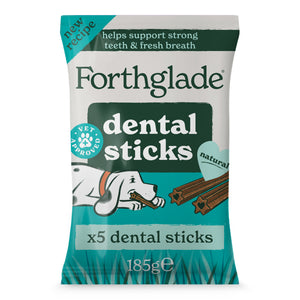

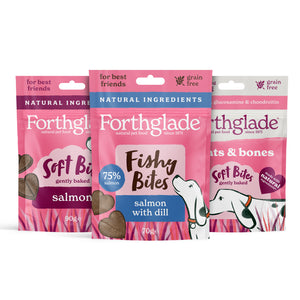
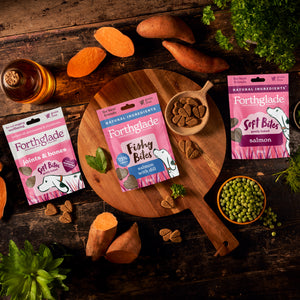


 FAST & FREE DELIVERY ON ORDERS £40+*
FAST & FREE DELIVERY ON ORDERS £40+*
 SUBSCRIBE TO SAVE 10% OFF EVERY ORDER
SUBSCRIBE TO SAVE 10% OFF EVERY ORDER
 OVER 13,600 5 STAR REVIEWS
OVER 13,600 5 STAR REVIEWS


